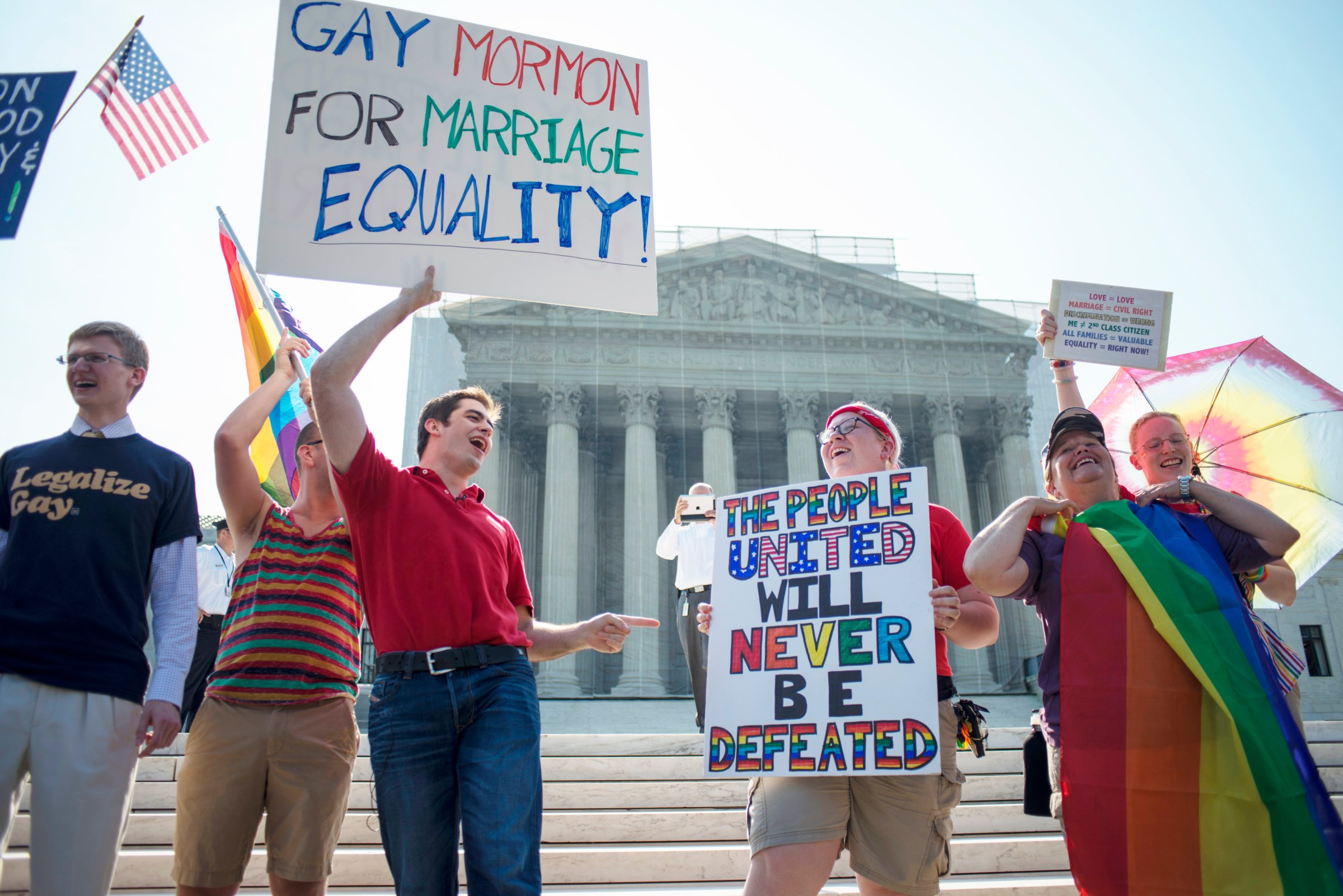
The high-volume shouting matches over the theology of Duck Dynasty, the rollout of Obamacare, the constitutionality of surveillance by the National Security Agency and so much more make it obvious that our nation has never been more polarized over politics and culture, right?
(MORE: New Laws for a New Year)
Not so fast. The apparently massive and unbridgeable gulfs between Republicans and Democrats, men and women, gays and straights, secularists and believers, rich and poor, and coastal elites and heartland Americans are belied by data that show substantial and growing majorities actually agree on a wide variety of important social and policy issues and attitudes.
Here’s a sampling:
Of course, all of these issues — and many others — contain nuances and contexts that need to be taken into account. And most issues show partisan differences too, with Republicans pulling in one direction, Democrats in another and Independents (who are, at 44%, the single largest bloc of voters by far) somewhere in between. But it’s striking that Americans seem to be becoming more socially liberal and fiscally conservative with every passing year. That just isn’t reflected in the platforms of the major parties, with the GOP only getting more conservative and the Democrats only more liberal.
With very few exceptions, you never hear a Republican or Democratic politician or a cable host talk about such numbers in a systematic way. Instead, Fox News folks yammer on about how gays are demanding special rights and the government is spending too much (except on defense!). Over at MSNBC, the mirror image holds sway. That’s because most politicos — and their analogues in the media — almost always come from the fringes of their respective ideologies.
(MORE: Six Ways the U.S. is Changing)
In works such as Culture War?: The Myth of a Polarized America (2004) and Disconnect: The Breakdown of Representation in American Politics (2010), Stanford political scientist Morris P. Fiorina explains that the mechanisms for selecting candidates and party platforms reward special-interest groups that tend to have very narrow and unrepresentative views. “A polarized political class makes the citizenry appear polarized, writes Fiorina, “but it is only that — an appearance.” In short, we are faced with political choices that don’t represent our actual attitudes toward politics. The same holds true in cable news, where many talkers are former or future party apparatchiks or pulled from archly ideological publications.
The “bulk of the American citizenry,” Fiorina cheekily suggests, “is somewhat in the position of the unfortunate citizens of some third-world countries who try to stay out of the cross fire while Maoist guerillas and right-wing death squads shoot at each other.” That’s a pretty good description of channel surfing between Rachel Maddow and Sean Hannity or flipping between a White House presser and a John Boehner speech, isn’t it?
Of course, recognizing that huge areas of agreement already exist among Americans doesn’t mean that 2014 — or any other year — should be one giant “Kumbaya” sing-along. How to address economic stagnation, immigration, the debt limit, long- and short-term deficits, foreign policy and more has never been easy, even when everyone absolutely agrees. But with so many pressing problems confronting Washington, acknowledging that more unites us than divides us might be a smart way to create a future that doesn’t revolve around hermeneutic readings of the theological implications of reality-TV stars or actively ignoring what large majorities of Americans actually believe.
More Must-Reads From TIME
- The 100 Most Influential People of 2024
- Coco Gauff Is Playing for Herself Now
- Scenes From Pro-Palestinian Encampments Across U.S. Universities
- 6 Compliments That Land Every Time
- If You're Dating Right Now , You're Brave: Column
- The AI That Could Heal a Divided Internet
- Fallout Is a Brilliant Model for the Future of Video Game Adaptations
- Want Weekly Recs on What to Watch, Read, and More? Sign Up for Worth Your Time
Contact us at letters@time.com